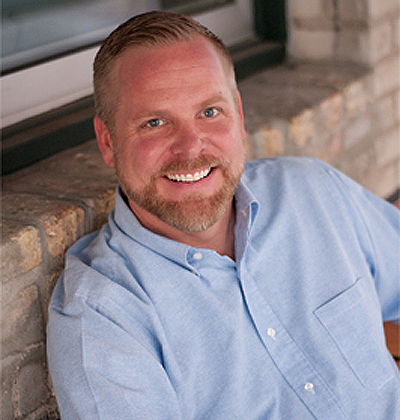How many times have you attended a networking event and the opening question from someone you just met is, “So, what do you do?”
Of course you have. And I bet you’ve asked the same question in return. Not that there’s anything wrong with the question, but if you pause and think about it for a moment, it’s rather impersonal.
But then again, so are we.
Western culture has trained us to demonstrate a strong work ethic. And in our devotion to production, we’ve been taught to place more emphasis on the profession rather than the person. We identify ourselves by what we do more than who we are.
Many of us have also been conditioned to separate work and life, but this separation can wreak havoc on our personalities. Namely, we end up having to manage two different personas—the “work me” and the “personal me.”
But in other parts of the globe, the perspective is different.
When I lived and worked in Bangalore, my fellow coworkers were more interested in getting to know me (as a person) before we started working together. My team understood that work is an extension of who we are—not the other way around. In India, they believed that people come before process.
When we equate our personal identity with only what we are doing, we miss out on the other half of the equation: who we are being. Throughout our lifetime, what we “do” is dynamic and changing, but who we “be” remains consistent. In fact, our human being is always growing, learning, and evolving.
Our lives have momentum, and so do our careers. So when we have a shift in employment—when a large part of what we are doing changes—the effects ripple into all other areas of our life.
Whether it’s sudden career transition like a layoff, or planned transition such as retirement or building a new business, a shift in career is one of the largest stressors we can experience in our lifetime. And since we identify ourselves so significantly by what we do, having our career foundation shift can feel like a rug is being pulled out from under us.
Working as a career transition coach, leading The White Box Club™, and having been through several job transitions myself, I’ve experienced firsthand the rollercoaster of thoughts and emotions that career changes bring. If we can know our true selves better—our human beings—then we can stand more resilient and adaptable during these major life events.
Here are some useful tips to help maintain your identity through a career shift or any major life transition:
Keep up with yourself. Life is in constant change and so are we. Keeping up with yourself is honoring your life changes—both on the inside and outside of you—and choosing to deliberately grow. Developing new interests and learning new skills will also keep us engaged in our own personal and professional progress, resulting in having a larger investment in ourselves.
Know your strengths; know yourself. We all have strengths that are unique to us—some are obvious, and some are not. When we identify our strengths by using tools such as CliftonStrengths, we can learn to recognize and appreciate our natural gifts. In return, the value of knowing our strengths can bring us increased productivity, confidence, and clarity of purpose.
Seek alignment in your work and relationships. Alignment means that we feel connected and engaged in our work and the people we work with, and this feeling is reflected back to us through the quality of those experiences. When we consciously seek alignment with others, we look for the win-win solution.
Develop a high tolerance for uncertainty. If there’s one thing we can all agree on, it’s that life is uncertain. There will always be changes and unexpected events. If we can remain flexible in times of stress, we can stay connected to our natural creativity. Since none of us really know what tomorrow will bring, we can choose to relax and let go of the need to know.
You are supposed to be unique. Like our strengths, each of us has unique talents and gifts to bring to the world. Appreciate your differences—they’re what make you valuable and wonderful just the way you are. Celebrate your individuality! And know that there will always be new opportunities and relationships waiting for you to discover them.
So the next time you meet someone new, try “Tell me more about yourself,” or “What are you excited about?” instead of the obligatory “What do you do?” See how your conversation changes when they begin speaking about their being more than doing.
Isn’t it about time?
Michael Thomas Sunnarborg helps people find clarity and balance in all areas of life. Learn more at michaelcreative.com.
Ready for additional tips on resilience? Find more of Michael’s stories, insights, and life lessons in Bald Men Don’t Use Hairspray and Other Assumptions, or another one of Michael’s books at michaelcreative.com/books.
Image: Pixabay.com
Originally published at michaelcreative.com


